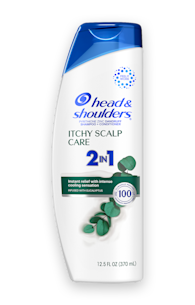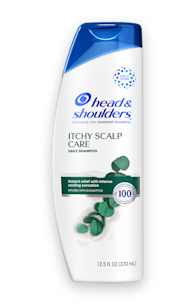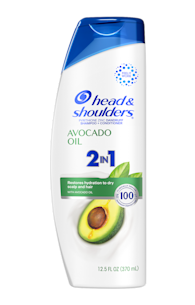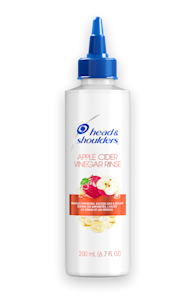HOW TO TREAT AND FIX DRY, ITCHY SCALP AT HOME

We’ve all experienced an itchy scalp at some time or another. But what if the itch doesn’t seem to go away? Whether it’s from under washing, a reaction to a certain product, or an unknown source, an itchy scalp can be both irritating and uncomfortable. Luckily, there are simple ways to treat dry, itchy scalp and find relief in the comfort of your home.
Understanding the Itch: What Causes Dry Scalp?
The most common source of an itchy scalp is dryness. Scalp dryness can be caused by a few common factors like the following:
Harsh Products
Hair care products used for chemical or color treatments may contain harsh chemicals that can irritate your scalp.
Extreme Temperatures
Exposing your scalp to cold, dry winter air or overusing heat styling tools like blow dryers can contribute to scalp dryness.
Hot Water
Washing your hair with water that’s too hot can irritate your scalp.
Dehydration
Not drinking enough water can impact the overall hydration of your body, including your scalp!
Improper Diet
You may not be getting enough essential nutrients like omega-3 fatty acids that can be found in salmon, cod liver oil, and walnuts in your diet.
Medications
A side effect of some medications may be scalp dryness, so be sure to check the label.
In addition to these, there are a few more factors that may be out of your control, such as dryness caused by age, hormonal imbalances, or underlying skin conditions like psoriasis or eczema.
Treating Dry Scalp from Home
Now that you’ve narrowed down the possible source of the dryness, it’s time to address it. Let’s start with a few simple solutions you can try immediately.
Avoid Too-Hot Water
Save the hot water for amazing showers. Instead, use lukewarm water when washing your hair.
Hydration is Essential
Like the rest of your body, the skin on your scalp benefits from hydration. Make sure to drink enough water to maintain overall skin health.
Eat Healthy Fats
Incorporate foods rich in omega-3 fatty acids, like salmon and flaxseeds into your diet. These healthy fats can contribute to a well-hydrated scalp.
Gentle Shampooing
Switch to a mild, moisturizing shampoo that doesn't strip your scalp of natural oils and exacerbate dryness.
Relief for Itchy Scalp
If you are still feeling an itchy scalp, it is common to reach for home remedies such as aloe vera, apple cider vinegar, and oils. However, dryness and itch can be associated with dandruff, even without the presence of flakes. While these natural ingredients may provide temporary relief on your scalp, they do not get to the root cause of dandruff. Head & Shoulders, with active ingredient Zinc Pyrithione that delivers benefits to help stop dandruff at its source, offers a variety of ingredient inspired shampoos and conditioners that will help soothe your itchy scalp.
Aloe Vera Gel
Aloe vera is known as a natural moisturizer and used to soothe irritated skin. To calm itching and irritation caused by dandruff, try Head & Shoulders Aloe Vera 2 in 1 Shampoo for soothing scalp relief.
Apple Cider Vinegar Solution
Apple cider vinegar is known for its pH balancing properties. If you want to remove impurities, excess oils, and build-up, try Head & Shoulders Apple Cider Vinegar Rinse as part of a regimen with Head & Shoulders Apple Cider Vinegar Shampoo. Use this rinse before shampooing to protect your scalp from itching and leave your hair smelling more like apples and less like vinegar.
Tea Tree Oil Rinse
Tea tree oil is known to have antifungal and antibacterial properties. We recommend using Head & Shoulders Tea Tree Oil Anti-Dandruff Shampoo to hydrate and cool your scalp.
Coconut Oil
Coconut oil is known for its moisturizing properties. If you have natural, relaxed, kinky or coily hair type, try Head & Shoulders Royal Oils Sulfate Free Scalp Care Shampoo and Head & Shoulders Royal Oils Moisturizing Hair Conditioner with coconut oil and apple cider vinegar to help balance essential scalp moisture.
If your scalp issues persist, please consult with a dermatologist. Remember, everyone's scalp is unique, so it may take some experimentation to find the approach that works best for you. Consistency is key, and with a little care, you can soothe and restore your scalp to its healthy, comfortable state. Want more scalp advice? Head on over to our blog!









